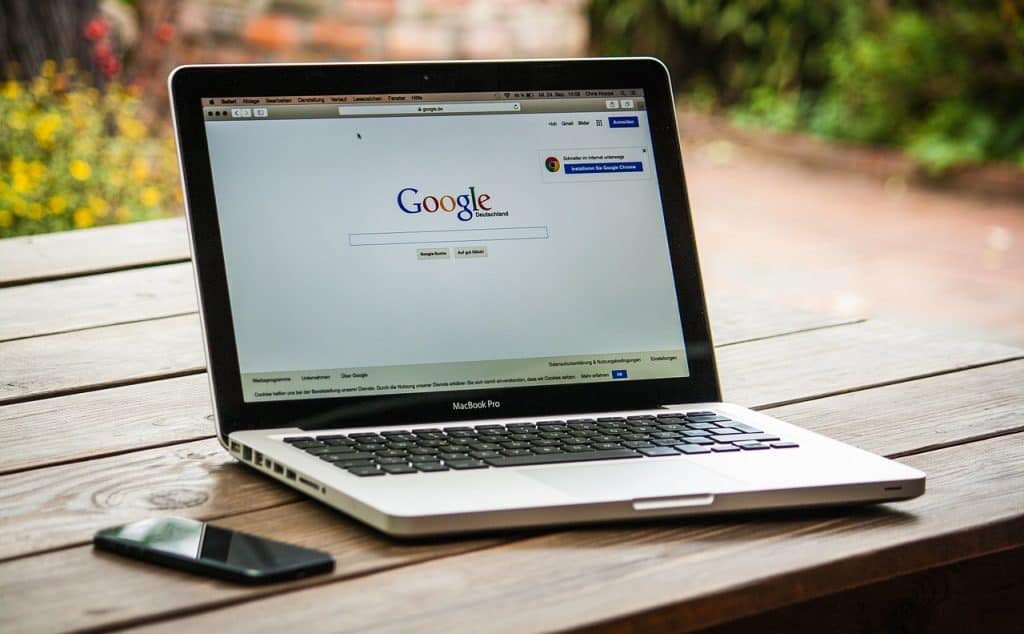
PageRank (PR) is an algorithm that Google uses to rank pages of the websites in its search results.
Pagerank determines the importance of a website by counting the number and quality of links to the pages of the site. The basic assumption is that more important sites tend to receive more backlinks from other websites.
The rank value determines the importance of a particular page.
Statistics show that more than 90% of the buying decisions start with a search online. And the first ten search results receive the majority (89%) of the entire click-through traffic. And the next ten results which are usually displayed on the second page receive less than 5% of the click-through traffic.
Ranking on the first page is so important that companies can rise or fall due to their Google search results when customers are looking online for the products and services that they sell.
Few facts about PageRank
PageRank is just one of the numerous factors that Google uses in its search result Algorithm. There are various other factors also that affects the Google’s search rankings.
Outbound links help the ranking of the website. Therefore they are ranking factors too.
The algorithms are so complicated and complex that sometimes even leading search engineers working for Google don’t understand them. It is almost impossible to know every bit of code because Google has made over 450 algorithm changes in one year.
The greater the number of links on a page, the less each link’s worth.
Outbound links never pass the full amount of PageRank. The amount of PageRank that flows out per link is always varied. All the links pass a little less or a little more PageRank than what came into the page in the first place.
A link from a reputed or an authority site will help increase the rankings in search engines might not be a right expectation.
An outbound link might have a negative ranking value if it is linked to an irrelevant website.
PageRank is more about the pages and the inbound links associated with those pages. So most likely, a site doesn’t lose its rankings with outbound links. An important and relevant page will be able to attract attention and rank through links.
Every page has its own importance. While considering the links on a page, there isn’t any need to consider whether an outbound link is going to impact the ranking of another page negatively.
The quality and usefulness of the web page to its users determine its importance and ranking in search engines and not the entire website.
How to Improve Your PageRank
When someone inputs a search in Google, the first page of websites that show up is usually what people pay attention to. Ever wonder how the people on the first page get there?
Page rank is something Google gives to a webpage that tells Google how important a page is based on the topic being searched. Direct selling leaders need to have a good web presence. The best way to get great web presence is to write great articles, and have them show up at the TOP!
Below are some tips to help.
Google Page Ranking Tips for Direct Sellers: Google ranks a page according to a number of factors.
Keyword Research
Page Optimization
Outside your web page optimization
Keyword Research: When considering Google and it’s page ranking, the best and most organic way to get a good page rank and results are getting the right keywords on your page.
Google bases its ranking mostly on what keywords you are using on your site. It’s important to find low competition, highly searched keywords.
Search Engine Optimization: What does search engine optimization mean? Google looks for certain aspects of your page to give it clues that you really know what you are talking about.
Direct sellers should use the following tips to increase their Google page ranking.
Keep URL short
Use the keywords a few times within the first 100 words
Use keywords in your image title
Use keywords in your alt tag
Use keywords in your title tags
Use keywords in your meta description
Make your keywords BOLD
Give outgoing links to an authority site – link to something similar on Wikipedia or other similar informational sites
Link to a previous content on your site
Have keywords in your page URL
Place main keyword or related keywords in H1 H2 & H3 tags
Articles should have a good keyword balance – use keywords in your sentences but it should flow naturally
Outside Your Web Page Optimization: The things you do outside of your web page affects your rank as well.
Ezine articles – submit your well-written copy to EzineArticles.com using a ‘resource box’ to link back to your website.
Social media – don’t be spammy but go and be social when using your Facebook for business pages. Just be yourself and be friendly. If you don’t push your product openly very often people will begin to trust you.
Only 10% of your posts should be with a link back to your webpage. Google searches the social media posts and they look important for page ranking.
Posting on other people’s blogs – find similar blogs and be social with a link to your webpage in your signature. Being social in blogs also gives importance to your page, thus giving it more page rank.